Irene Piki on PPPs: We need to build a clearer narrative when pitching these projects to investors
07:00 - 27 March 2025
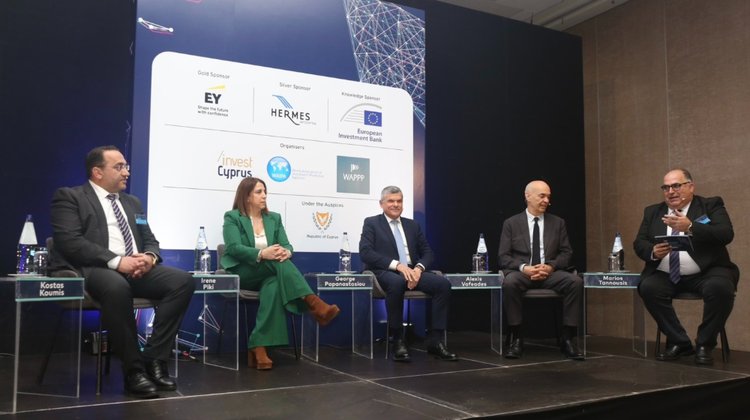
Deputy Minister to the President Irene Piki said during a panel with fellow members of government that while the government is very open to public-private partnerships (PPPs), "we need to build a clearer narrative when pitching these projects to investors".
The officials were participating in a panel discussion, entitled “Utilizing Public-Private Partnerships (PPP) to unlock investment, during the “Unlocking investment through Public-Private Partnerships (PPPs)”, that took place in Nicosia on 26 March.
Joining Piki on the panel were Minister of Transport, Communications and Works Alexis Vafeades, Minister of Energy, Commerce and Industry George Papanastasiou, and Deputy Minister of Tourism Kostas Koumis, and the CEO of Invest Cyprus, Marios Tannousis as moderator.
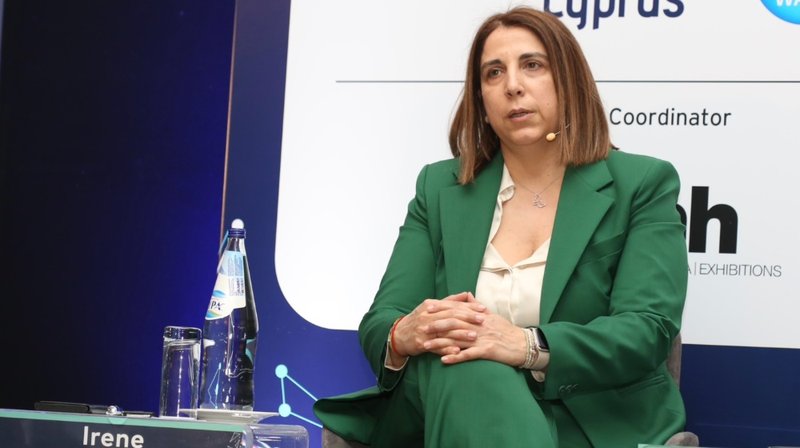
Starting off the discussion, Piki outlined the economic trajectory of Cyprus, noting that the country has one of the highest growth rates in Europe, a low unemployment rate and a significant decrease of public debt. She further cited the government’s fiscal responsibility and a number of reforms, adding that all the above give confidence to investors.
Regarding PPPs, Piki noted the importance of having a skilled public sector, a legal framework and long-term planning to be able to utilise this instrument. She added, "We need to build a clearer narrative when pitching these projects to investors and we need to be more flexible when we are being approached by the private sector, within the framework of the legislation.”
Asked about the government’s priorities in investments that could utilise PPPs, she said that the Cabinet just that morning was discussing about water resources, and how old pipelines lead to 35-40% water loss, noting that this could be a project of interest that would address an important need in Cyprus. She also mentioned the importance of the technology sector and the technology park in Pentakomo, describing it as a “strategic” project.
“When we talk about PPPs we need to have a strategic planning in mind” she said, adding that the government needs a good pipeline of projects, asking Invest Cyprus to work towards having a matching between the government priorities and projects that are eligible for PPP, mentioning the President’s trip to the USA next week, to discuss investments.
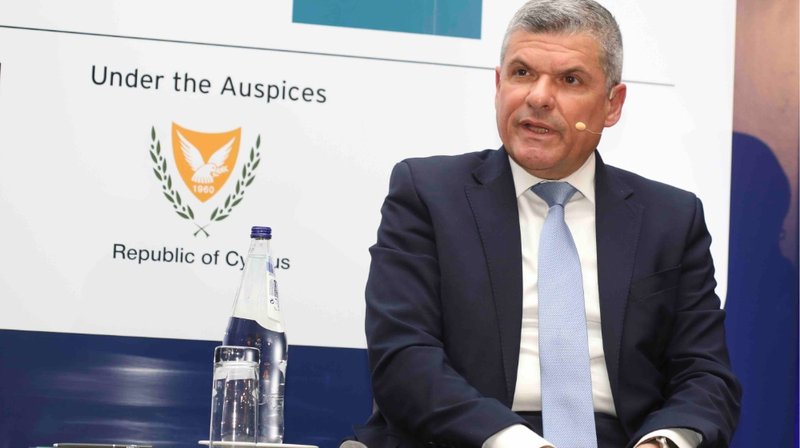
Energy Minister, George Papanastasiou, said that through PPPs we utilize the strengths of both the public and private sector, for better deliverables. He noted that public sector’s contribution towards PPPs are regulatory framework awareness and issuing permits and licenses, while the private sector’s strengths are speed, efficiency and financing.
He underlined the importance of building trust between the public and private sector, as well as the need for transparency. He also noted that process flexibility is also critical. “We need to be flexible enough to accommodate the PPPs. We need to think outside of the box, we need to be creative and reconsider the processes”, he said.
He said that in the Ministry of Energy, there is a business facilitation unit that works as a one-stop shop and as a point of contact for investors, providing guidance regarding the regulatory framework. The message coming out of this unit, he said, is that it makes sense to combine a Foreign Direct Investment (FDI) with a PPP.
Regarding his portfolio, he said that the energy sector needs new technologies and new infrastructure and these require investments and financing, provided by the private sector. He noted that after the investments in PVs and other RES, the next thing is to deliver the storage and for the grid to become smart, with the final goal of providing the lowest cost possible for the consumer. He mentioned that there is lots of space in Cyprus for such investments, noting also the opportunity that comes from electricity interconnections.
Finally, he noted that the biggest investments in Cyprus today regard natural gas offshore exploration, and he expressed optimism that Cyprus will have natural gas by 2027, describing the project as “the biggest PPP we have.”
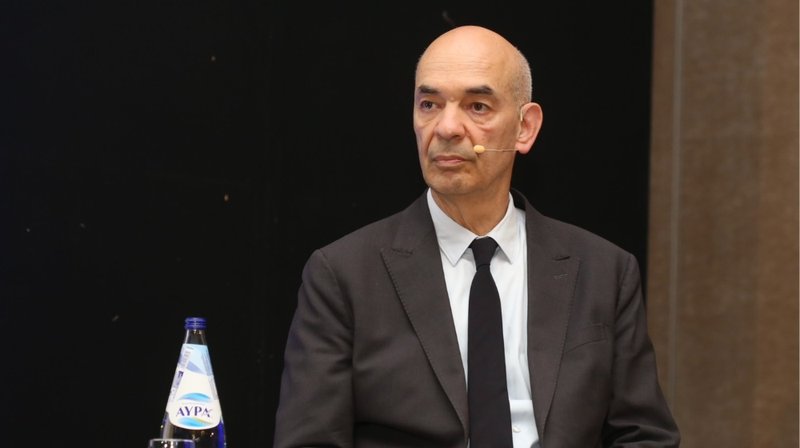
Minister of Transport, Alexis Vafeades said that PPPs have had a catalytical role in projects like the airports and the ports. He noted that when the government turns to a PPP it searches for expertise, financing and human resources. “Our state budget is limited, and we wish to do more”, he said, predicting that the government will be looking for more PPPs in the future.
“We approach PPPs as a tool to be able to give more facilities to the people”, he said, adding that real estate is an important sector for PPPs as well, since in today’s Cabinet meeting there was talk regarding renovating government property in Troodos, possibly through a PPP, to save government expenditure and to increase commercial activity in the area. Regarding the real estate sector, he said that there are already 40 buildings in the pipeline, and he anticipates that more are coming, with an increased need for space for government offices.
He also mentioned the Larnaka marina and port project, noting that a study for the future of the project is underway, following the termination of Kition project, with a proposal to the private sector to finance and operate the project following.
“We need to find the best solution for the government. For us, PPPs are a big part for the way forward, but not the only way”, he said, adding, for example, that for Cyprus, road projects are not in the plans yet for PPPs. “For everything that has a commercial value that might interest the private sector, PPPs might be an option”, he said.
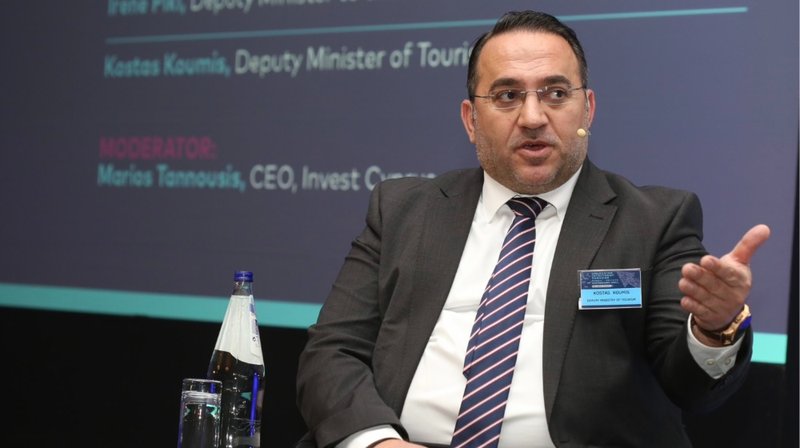
Tourism Deputy Minister Kostas Koumis said that Limassol and Ayia Napa marinas are already operating through PPPs, and Protaras marina is also under construction with the works expected to conclude this summer. Moreover, he added that by the end of June, the Deputy Ministry will go forward with the expression of interest for Paphos’ marina.
Koumis also said that the Deputy Ministry of Tourism is working on a new policy regarding the cooperation between the public and private sector, for large thematic parks in Cyprus, to improve the “pull factor” of Cyprus’ tourism, the set of elements that attract people to the island, describing the idea as “promising”.
Finally, he noted that when talking about private sector investments in certain projects, this doesn’t always have to regard infrastructure and gave the example of giving incentives to private sector to invest in different tourism sectors, such as sports tourism, describing this as “another form of a PPP”.

